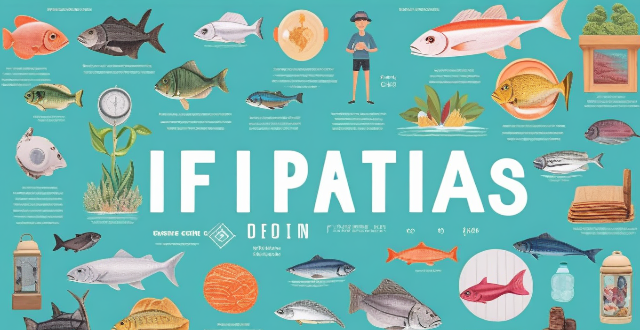Biodiversity plays a significant role in the global economy by providing various economic benefits. These include increased resilience to climate change, support for sustainable agriculture, tourism revenue, pharmaceutical and medical research opportunities, ecosystem services, fisheries and food security, cultural and aesthetic value, innovation and education, risk management and insurance, and trade and livelihoods. Preserving biodiversity is crucial for maintaining these economic benefits across different sectors.

The Economic Benefits of Biodiversity
Biodiversity, the variety of life on Earth, is not only essential for the natural world but also plays a crucial role in the global economy. Here are some key economic benefits of biodiversity:
Increased Resilience to Climate Change
- Biodiversity helps ecosystems adapt to climate change by providing a range of species that can survive under different conditions.
- This resilience reduces the economic costs associated with damage from extreme weather events and changes in temperature patterns.
Support for Sustainable Agriculture
- Biodiversity supports pollinators like bees, which are vital for crop production. Without these creatures, many crops would require manual pollination, increasing labor costs.
- Diverse crops and livestock breeds increase agricultural productivity and resistance to pests and diseases, reducing the need for chemical inputs and enhancing food security.
Tourism and Recreation
- Biodiversity attracts tourists, generating significant revenue for local communities and entire countries.
- Ecotourism creates jobs and promotes conservation efforts, as there is an incentive to protect natural areas that draw visitors.
Pharmaceuticals and Medical Research
- Many modern medicines are derived from or inspired by compounds found in diverse organisms, such as plants and animals.
- Biodiversity provides a source of new drugs and medical treatments, contributing to a multibillion-dollar industry.
Ecosystem Services
- Biodiversity supports ecosystem services like water purification, soil formation, and nutrient cycling, which have immense economic value.
- Damage to ecosystems due to biodiversity loss can lead to increased costs for things like water treatment and irrigation systems.
Fisheries and Food Security
- Biodiversity in oceans and freshwater bodies supports fisheries, which are a critical source of protein for millions of people worldwide.
- Healthy fish populations ensure sustainable fishing practices, protecting livelihoods and food sources.
Cultural and Aesthetic Value
- Biodiversity enriches cultural heritage through traditional knowledge, practices, and ceremonies tied to specific species.
- It also provides aesthetic value, which can directly influence real estate values and quality of life.
Innovation and Education
- Studying biodiversity fosters scientific innovation and educational opportunities across various disciplines.
- These advancements can lead to new technologies and industries, further driving economic growth.
Risk Management and Insurance
- By maintaining healthy ecosystems, biodiversity can help mitigate risks associated with natural disasters like floods and droughts.
- This risk reduction can lower insurance premiums and disaster response costs for communities located near diverse habitats.
Trade and Livelihoods
- Many communities depend on biodiversity for their livelihoods through activities such as harvesting non-timber forest products or practicing ecotourism.
- International trade in goods derived from biodiversity (e.g., timber, spices, medicinal plants) contributes significantly to global markets.
In conclusion, biodiversity is not just an environmental concern; it is integral to the global economy. Its preservation and sustainable use offer numerous economic benefits that span sectors from agriculture to tourism, healthcare, and beyond.